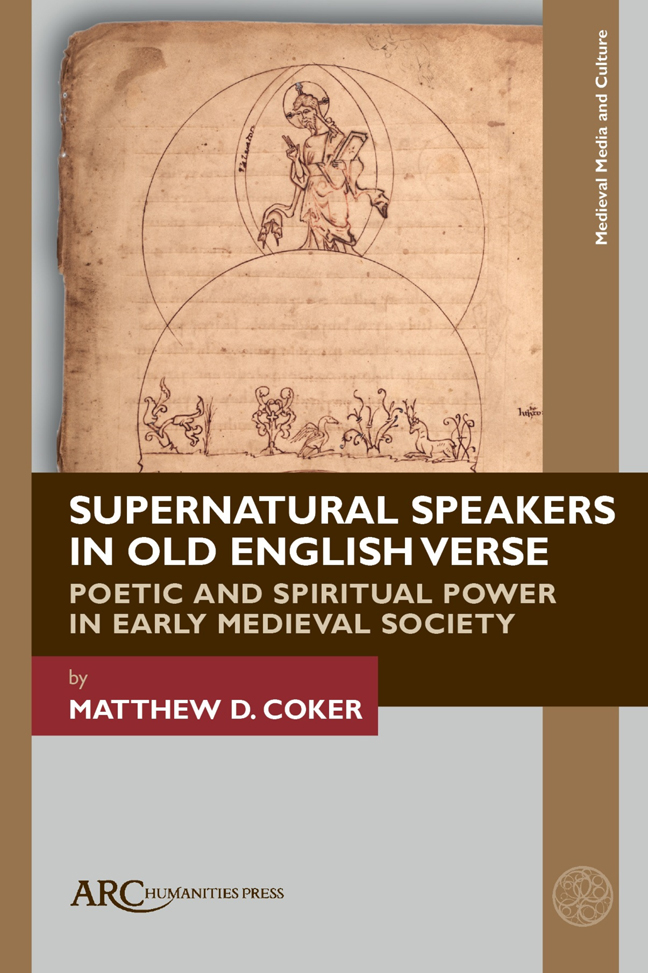Book contents
Summary
IT IS USEFUL to begin this conclusion by recapitulating the book's primary argu-ment. In Genesis A, Christ C, and Guthlac A, the masterful forms of Old English poetic power perform the voices of supernatural speakers, representing these as powerful speakers by aligning their discourse with the audience's intuitive sense of poetic power. Since such linguistic mastery leads to credibility and influence, we can also speak of this poetically powerful speech as influential. The poets’ (and, indeed, supernatural speak-ers’) influence can be observed not only in the fact that these poems were preserved, but also in other Old English poems which bear the marks of these antecedents’ influ-ence. While few scholars have overlooked the didactic aims of such religious poetry, the analyses presented in this book illuminate as never before our three poets’ particular artistic and didactic aims as well as the essential role of speech within those aims. For these poets all make explicit mention of the importance of keeping God's words, and in presenting these words to their audiences in such powerful and influential forms, the poets labour to guarantee their audiences will remember those words and carry out their directives. Hence, the most poetically powerful supernatural speeches are clear indications of what these poets wanted their audiences to learn.
In Genesis A, the most powerful speeches demonstrate God's power over Satan, demons, the wicked, and the material world, as well as demonstrating the results of disobedience and God's power to protect and bless those who listen to and keep his words. Here, like an ideal heroic king, God's words are equivalent to his deeds, and with these words he intervenes into this world by supernaturally calling his subject creations into order. His commands and decrees shape the obedient material order and call variable humanity into the terms of his word. Those who remain within his terms are “created” nobles, endowed with gifts, rank, and honoured lineage; those vio-lating his terms receive retribution, whether cursing, outlawry, or death. The stron-gest examples of God's poetic power, which usually coincide with hypermetrics, are predominantly speech-acts in which his word orders material or social reality in these ways. The second most poetically powerful speech in the poem is a case in point: when God curses Cain, he reviews the social expectations of what Cain should have done, then states what Cain actually did, then decrees Cain's fate as a punishment.
- Type
- Chapter
- Information
- Supernatural Speakers in Old English VersePoetic and Spiritual Power in Early Medieval Society, pp. 151 - 154Publisher: Amsterdam University PressPrint publication year: 2023



